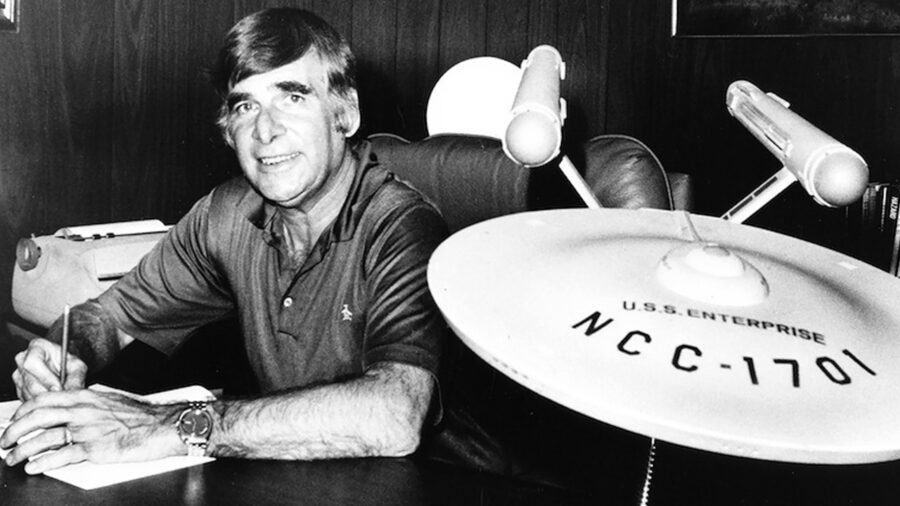The Star Trek Episode Gene Roddenberry Made Nearly Impossible To Film

Gene Roddenberry created Star Trek out of his utopian ideals, but it didn’t take long for those ideals to cause a problem in the early days of The Next Generation. The creator infamously didn’t want to portray any kind of conflict between humans (especially between the Enterprise crew) because he wanted to drive home that humanity had evolved past such petty bickering. This edict made it difficult to write and direct for the show and nearly made one TNG episode impossible: “The Icarus Factor” director Robert Iscove hated being unable to dive into the conflict between Riker and his deadbeat dad and turned down later Trek directing jobs.
The Icarus Factor

“The Icarus Factor” gives us some extensive background info about Commander Riker, including the heartbreaking detail that his father, Kyle, abandoned the future Starfleet officer (whose mother had previously died) when he was only 15. The older man becomes a Starfleet advisor and their paths cross in this episode, giving them time to fight it out (quite literally, using futuristic martial arts) and ultimately reconcile.
The Director Speaks On The Issue

This all makes for one of the better Season 2 episodes of The Next Generation, but director Robert Iscove had trouble working within Roddenberry’s restrictions, and was quoted about the matter in Captains’ Logs: The Unauthorized Complete Trek Voyages. “If you’re not going to serve the resentment and the anger, what happens once the two of them get together, you can’t get into any real Human drama,” he said. “The Original Series was much more humanistic in its approach.”
Roddenberry Turned Down Creative Efforts Left And Right

In complaining about these restrictions, the veteran director was quite open about how Roddenberry’s belief made bringing “The Icarus Factor” to life so difficult. He mentioned how the Star Trek creator believed that, “by the 24th century we’ve all kind of resolved those feelings of anger,” making the emotional dynamic between father and son “very hard to play.” These are restrictions that the show’s early writers frequently complained about, and Iscove likely felt additional frustration because Roddenberry thwarted his own creative efforts at every turn.
If You Can’t Deal With The Emotion, What’s The Point?

Apparently, the director made many attempts to add more emotion to “The Icarus Factor,” and these attempts met with the approval of some very big names. For example, influential producer Rick Berman approved of these efforts, but Gene Roddenberry had the final say on what could or could not go into each episode of his popular sci-fi spinoff. This endlessly annoyed Iscove, who (as quoted in Captain’s Logs) later summed up his frustration in a single question: “If you can’t deal with the emotion, what’s the point?”
Putting his money where his mouth is, Iscove effectively walked away from the show. After his frustrations during “The Icarus Factor,” he turned down future offers to direct Star Trek episodes. In this way, he was a bit like Commander Riker…the show kept pulling the big chair out for the director and he kept refusing to sit down.
The Only Time We See Riker’s Dad

Historically, early TNG writers were frustrated by the restrictions of Gene Roddenberry because human conflict is vital to any great story. Those restrictions were even worse during “The Icarus Factor,” a story that revolved around two characters with 25 years of resentment but who couldn’t get real with each other about their feelings.
Sadly, Kyle Riker would never make another appearance onscreen, though the fact that he nearly married the cantankerous Dr. Pulaski is a trivia fact that appears in our heads constantly when we’re trying to sleep.
Riker’s dad nearly married the commander’s own Mommy figure? Forget Counselor Troi, Riker’s going to have to replicate Sigmund Freud on the holodeck to fully unpack all of this.












